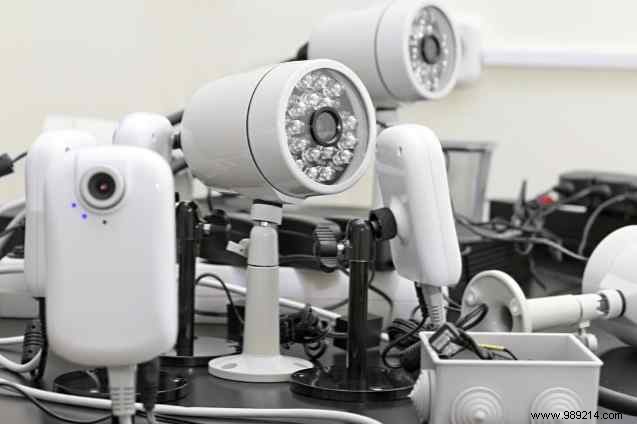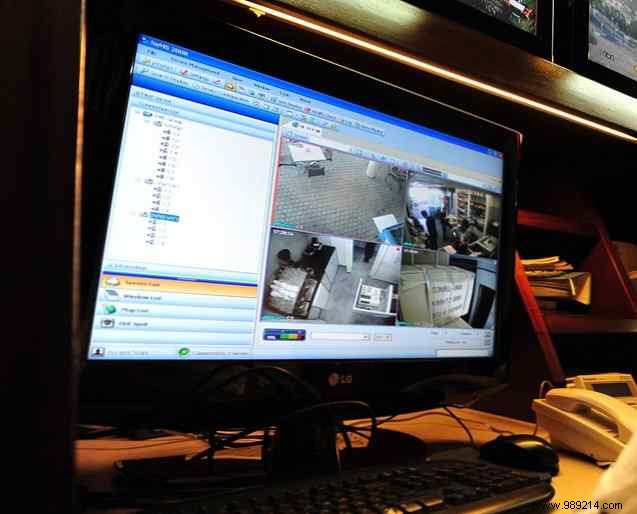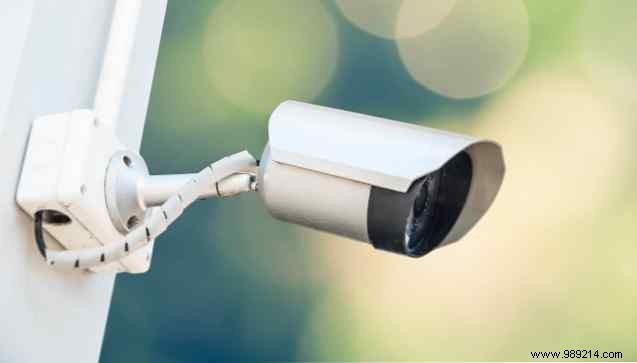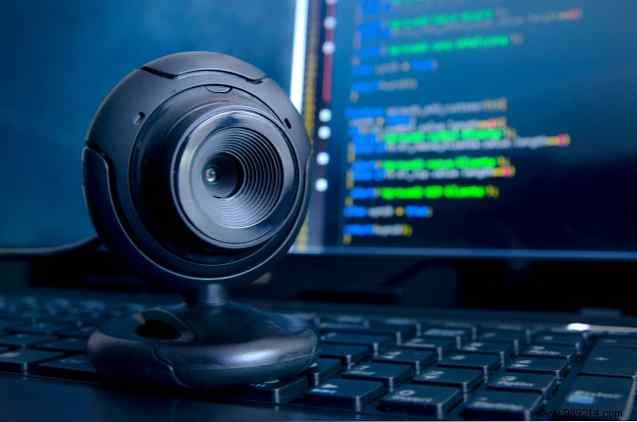Is your wireless security camera secure? It's a question that many have been asking themselves in recent months, as stories about security vulnerabilities have surfaced.
Owners of commercially available wireless security camera systems are particularly prone to these security breaches, which have resulted in live images being broadcast from homes around the world to visitors.
Some of these people may have unpleasant acts in mind. Others could be using the insecure security camera footage for more nefarious acts, perhaps to establish the whereabouts of their victim, with the aim of attacking property.
Clearly this is not an acceptable state of affairs. To combat this, you need to secure your security cameras. Let's find out how.
You may know them as Internet Protocol (IP) cameras and they are also used as baby monitors. Essentially, a wireless security camera is a camera that transmits its images to a generally secure online space, where you can watch what's happening on another computer, or perhaps through a mobile app.
These are popular options for anyone who wants to keep their property secure, or who likes to keep an eye on their children (or even pets) when they sleep (this can be particularly useful if a small child is sick, for example), and A can often be configured to transmit sound and vision.

However, the most important aspect of these devices, even more than price and ease of setup, is that they encrypt data (usually with SSL/TLS What is an SSL Certificate and Do You Need One? What is an SSL Certificate ?), and Do you need one? Browsing the Internet can be scary when it comes to personal information. Read More
With these basic requirements fulfilled, you should have no problem keeping the events transmitted through your IP camera away from prying eyes. But what if your wireless security camera doesn't come with these elementary security features?
The wireless network you are connected to to watch must also be secure. If you're at home, make sure your router is set to use WPA2-based encryption. This will keep things safe between the cameras and your router, while streaming encryption should keep you safe beyond this.

Viewing broadcasts can be inherently insecure. If you're in a coffee shop, for example, using the open wireless network there, you're open to attack. Any username and password you enter to access the camera feed could realistically be “sniffed”, for example, and while it is advantageous to use open networks to save money on mobile internet, this should not be done without the help of a VPN. How to set up a VPN (and why it's a good idea to use one) How to set up a VPN (and why it's a good idea to use one) Should I be using a VPN? The answer is quite likely yes. Read more.
The ability to stream video of what's happening at home to your mobile device is really helpful. But do you really need it? Does your internet camera really need to be transmitting data over the web?

Beyond concerns about bandwidth (some ISPs can hamper the volume of bandwidth used by even a couple of Internet security cameras), the risks of your home being broadcast online 24/7, such as a real version of Big Brother , it is quite worrying.
Also, the risks to your privacy from bugs in your IP cameras, or even an IP camera baby monitor, suggest that streaming online should only be done when you are fully convinced that the stream is secure. The rest of the time, keeping a closed network for your internet security cameras, on a secure network, you need to keep things tight.
Securing your network is not the only option. You should also make sure your cameras are password protected. By default, most cameras are not protected by default, you need to enable this manually (probably so manufacturers can rely on easy initial setup).

But don't limit yourself to just enabling a username and password. It's just as important to change the default credentials.
A large number of IP cameras have been hacked because these default usernames and passwords have not been changed. Home security systems may not be as secure as you think Home security systems may not be as secure as you think here. Most Notable Smart Home Security Hacks:Exploring What Happened and Why It Happened. Read More
As long as you do this, it will be difficult for hackers to access the stream using brute force methods. You should also make sure that your PC or smartphone (or whatever device you're watching the stream on) has a lock password and that the app can only be accessed via a username and password. You wouldn't want an unprotected phone getting into the hands of strangers, especially if they can access your security camera feed!
While you should take steps to install the cameras without having an accident, what we're talking about here is the location of the cameras.
For example, you wouldn't want to put a camera in your bathroom or master bedroom... you wouldn't point them at the house where you can watch someone changing around the world.

Similarly, pointing a camera at your burglar alarm keypad would be very silly.
We've seen a lot of cases involving questionable IP camera positioning, so please take the time to read our article on the sensible and safe placement of wireless security cameras. 5 Dangers To Watch Out For When Pointing Your Home Security Camera 5 Dangers To Watch Out For When Pointing Your Home Security Cameras It's important to carefully consider where you place your cameras and what parts of your home you point them at. Keeping things secure is important, but so is keeping your privacy. Read more.
There's a good chance that after reading this far, you're thinking about all the connected cameras in your house. Thoughts may have turned to your webcam. Is that little lens that you see from the top of your laptop safe and secure from this type of intrusion?

Well, most of the time, yes. But from time to time, threats appear that attackers can use to control your webcam. Clickjacking can be used to hide Flash activation (which is one of the many good reasons to disable Flash why Flash needs to die (and how you can get rid of it) Why Flash needs to die (and how you can get rid of it) The Internet's relationship with Flash has been a rocky one for a while. Once, it was a universal standard on the web. Now, it looks like it may be heading to the cutting block. What's changed? Read More Fortunately, you can protect yourself Hack Attack:How to Keep Your Webcam Secure Online Peeping Toms Hack Attack:How to Keep Your Webcam Secure Online Peeping Toms What would you do if someone had control of your webcam without your knowledge? Fortunately, there are ways to stay clean in front of these Toms. Read more.
On the other hand, if you have built a custom internet security camera Build a motion capture security system using a Raspberry Pi Build a motion capture security system using a Raspberry Pi Of the many projects you can build with the Raspberry Pi Pi, one of the most interesting and permanently useful is the motion capture security system. Read More In this scenario, you probably used dedicated (perhaps open source) software with a good reputation, and took the time to set it up correctly, making sure the username and password were set up securely. .
With all of this in mind, you should be able to make sure that your security cameras (perhaps the ones you use to watch your babysitter) Security cameras so visitors don't know they're being watched? Try these hidden cameras throughout the house Read More) are really secure. But what about the future? How to keep things safe in the future?
First of all, you need to make sure that the devices are regularly updated. Whether it is firmware for IP cameras or client software on your PC or smartphone, when updates are available, you should try to install them as soon as possible to keep your IP cameras secure.
For example, if technicians supporting cameras find a vulnerability, they will implement a fix to patch the vulnerability. If you don't update the wireless security cameras, there is a chance that the stream will be hacked.
Changing the camera regularly and viewing the account password is also a good idea.
So, is your wireless security camera safe? Have you tried any of the suggestions above or do you have your own proven method? Or have you completely abandoned the idea of security cameras? Tell us in the comments..